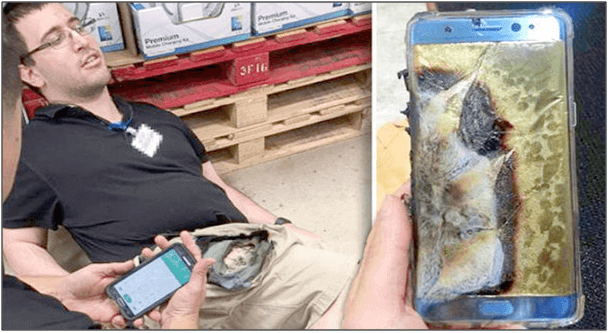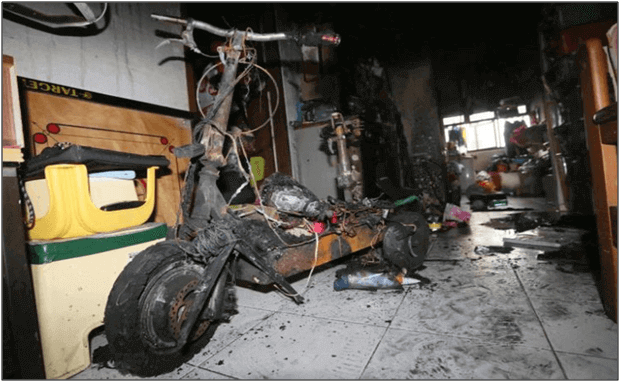Supply risk has always been a major challenge in the procurement practice since centuries ago. Managing organizational expenditures, understanding the importance of procurement in delivering your customer value proposition; optimizing supply chains; reducing cost and creating value while enforcing proper procurement policies is always a constant concern for procurement team.
Amid the pandemonium, every organization will face some challenges in their procurement processes. The challenges are often overlooked by even the most experienced leaders. Sometimes due to these challenges, an organization seizes new opportunities by discovering that fundamental changes are necessary. Failure to manage procurement processes effectively can have a significant negative impact on organizations. When procurement function faces a major challenge, solving it as soon as possible not only shows the efficiency of the department, but also financial and competitive health of the company.

Mistakes in Orders
The product and/or services specifications can often be misinterpreted during the ordering process. Each misinterpretation may cost the company an average of $150 per delivery. For an order of 10,000 or more per year, it would be costly to the company because of the misinterpretation. There are three stages where it can result in inaccurate transactions. First, buyer’s purchase order, secondly supplier’s invoice and lastly inventory delivery.It very often happens from missing paperwork, inadequate visibility, fraudulent invoice to inventory delivery. Depending on the situation, you might not be able to prevent mistake from happening beyond double-checking your orders and exerting caution. The principle severity of the error, and the delay or interruption caused will also be considered. Consequently, the products and/or services do not meet the standards that your clients set and may result in losing their trust, denting reputation, and impacting sales.
Table of Contents
Problematic Suppliers
In the procurement industry, developing a solid working relationship with vendors are the important key to ensuring that the business runs smoothly. Dealing with suppliers without any method of assessment can create irregularities in product specifications and bad experiences. Good communication is extremely necessary for many aspects of the business. If suppliers do not understand the organization’s strategic goals or motto, it may not fulfill the needs and requirements due to poor results. Suppliers typically deal with many organizations at once. The delivery is often delayed due to the product that is out of stock. Insufficient product knowledge will also cause suppliers to provide wrong supplies and offer incorrect product. As such, the expectation levels cannot be met and in turn affects the relationship. This will further reduce the working confidence on future deals.
Ineffective Strategies
Majority of the organizations do not have the luxury of having a corporate strategy team in providing feedback to the top management as they determine their strategies. In a fast-paced business world in which everyone is primarily interested in performance, operational problem solving is a core competency and top priority of the modern business. Failure to analyze and identify the organization’s expenditures can gain visibility that results in increased procurement costs, poorer efficiencies, and lack of ability to forecast spend. Unable to determine internal needs will be a challenge in formulating a strategy for the future. An organization cannot transform this into direction and requirements with no target sets for what needs to be procured.
Poor Organizational Structure
Many equally important procurement systems are often neglected by an organization, such as sourcing, management direction and/or supplier development. Poor organizational structure increases the likelihood of miscommunication, thereby causing work delays. The absence of clear direction is one of the most common problems. Leaders seldom discussed a deliberate direction, or they fail to pass down a coherent message about the decision to all the organization members.
Lacking of synchronization in the organization also has a significant effect on the performance in every aspect of the supply chain. Lacking of adequate knowledge in procurement may leads to serious implications including breaches in the codes of conduct. The best staff, products and marketing cannot benefit a business if an organization is not organized to capitalize on their strengths. Poor organizational structure can destroy companies that ought to have been successful and profitable.

Ignorance of Practices and Regulations
When it comes to procurement, ignorance is unacceptable and poor practices can have tragic consequences. It can range from low impact issues by disgruntled consumers through a written feedback to high impact issues that could tarnish the organization’s reputation and brand image. These issues frequently ruin the procurement proceedings or eradicate the opportunity for future bids. The fundamental misunderstanding may lead to non-compliance with regulations. Amid the COVID-19 pandemic, the seemingly overnight implementation of the Personal Protection Equipment (PPE) export restriction threw the logistics industry into chaos. All the PPE suppliers are speeding up to obtain an export license to fulfill the global market’s high demand.In response to the impact of climate change, authorities established stricter environmental regulations to governing emissions and the imposition of new carbon taxes. The most significant effects of these policies are expected in China, where strict regulations have been introduced to reduce emissions from the burning of coal, which resulted in forced shutdowns and closures of production plants.
Ambiguity on Roles and Responsibilities
Undefined clarity on roles and responsibilities can make employees feeling de-motivated and devalued, whereby ambiguity kills performance. They do not understand how to fit into the team, resulting in the inability to find their individual strength and create an ineffective working environment. Conflicting role descriptions will end up wasting employees’ energies understanding their roles within their teams rather than focusing on their productive tasks. They often get involved in unnecessary office politics and arguments. Lack of responsibility and authority delegation can also paralyze a company or waste resources that will eventually cut into their profits.
There have been widely published unethical procurement practices ranging from the deaths of low waged safety garment workers to fraud. Procurement personnel could face serious penalty by an authority for their immoral behaviors. The consequences could result in far beyond costs that can ruin the organization’s reputation.

Lack of Oversight and Audit Trails
When there is no proper infrastructure to monitor the oversight of the procurement process, the organization will not know what is happening in their supply chain. Uncontrolled spending and accidental orders will eventually result in the loss of revenue. As these purchased items cannot be readily accounted for in financial and inventory records, it complicates procurement policy, budget’s forecast, inventory records and financial audits.
Consolidated financial statements could not be fully reconciled when there is a lack of verifiable audit trail data. Without proper audit documentation, it increases the chance for fraudulent financial transactions. Breaches through unethical actions can cost an organization direct damage in profits and reputation. The lack of audit trails can cause an organization not being able to rectify or solve the suspicious transactions in time.
Conclusion
Tackling all the challenges that come with procurement management is not effortless. Communication at every stage is crucial for procurement success. It is necessary that effective remedies are provide to procurement team aggrieved by the disqualification processes. The necessity of standardizing procurement procedure and ensuring best practices becomes very important inn every organization’s business plan.
References
Ben Brearley. (2020). “How Leaders Can Fix Unclear Roles and Responsibilities”. Retrieved from https://www.thoughtfulleader.com/unclear-roles-and-responsibilities, accessed 17/06/2020.
Margaret Gilbert. (2017). “Procurement & Ethics Fraud”. Retrieved from https://procurementandsupply.com/2017/02/procurement-ethics-fraud, accessed 20/06/2020.
OMNIA Partners. (2020). “How and why you should get strategic with procurement”. Retrieved from https://www.americancityandcounty.com/2020/01/21/how-and-why-you-should-get-strategic-with-procurement, accessed 13/06/2020.
Rob Biedron. (2018). “The Extraordinary Cost of Poor Procurement Practices”. Retrieved from https://www.purchasecontrol.com/blog/cost-of-poor-procurement-tools, accessed 13/06/2020.
Shivakumar Sundar, DLSM. (2018). “Overcoming Challenges in Implementing Supply Chain for the Construction Industry”. Retrieved from SIPMM: https://publication.sipmm.edu.sg/overcoming-challenges-implementing-supply-chain-construction-industry, accessed 12/06/2020.
Steven Sin Choon Heong, DPSM. (2019). “Major Pitfalls for Effective Procurement Practices”. Retrieved from SIPMM: https://publication.sipmm.edu.sg/major-pitfalls-effective-procurement-practices, accessed 16/06/2020.

